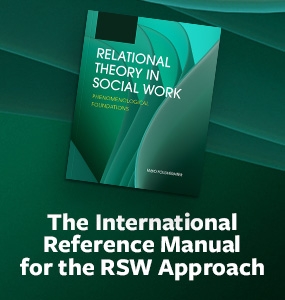Becoming a relational social worker. Group learning in social work education: Considerations from Unconventional Practice Placements
Francesca Corradini, Camilla Landi, Paola Limongelli
This paper highlights how Relational Social Work principles are applied in social work education. Particular attention is given to group work among the students in Unconventional Practice Placements (UPPs) at Catholic University in Italy. Indeed, the skills necessary to become a relational social worker are learned through group work. This paper is focused on the reflection of authors which derive from their accompanying work of the students and the reports written by the students at the conclusion of their UPP experiences. This article starts from a short overview of group learning in social work education and a brief summary of the UPP model, and then highlights how group learning strengthens students’ practical learning progress while paying particular attention to the application of the principles of Relational Social Work to the process. In the end, paper shows the usefulness of group-learning methods for students of social work degree courses. Moreover, it appears to confirm that the Relational Social Work theory offers useful implications for promoting effective group learning.
Keywords
Group learning, relational social work, Unconventional Practice Placements, social work education.




